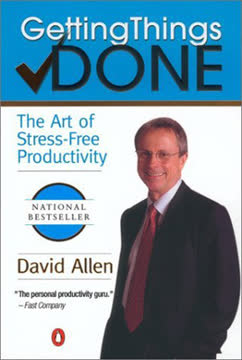Key Takeaways
1. Every entrepreneur exits: Prepare for the inevitable
Assuming you've built a viable company, you can choose when and how you exit, but you can't choose whether. It's going to happen. You can count on it.
Inevitability of exit. Every business owner will eventually leave their company, whether through sale, succession, or other means. This reality necessitates proactive planning to ensure a successful transition and maximize the value of your life's work.
Types of exits. Exits can take various forms, including:
- Selling to a third party (strategic buyer or financial investor)
- Passing the business to family members
- Implementing an employee stock ownership plan (ESOP)
- Going public through an initial public offering (IPO)
- Liquidation or closure
Preparation is key. Start thinking about your exit strategy early in your entrepreneurial journey. This mindset will help you build a more valuable, sustainable business and increase your options when the time comes to leave.
2. Know yourself before you exit: Identity, purpose, and values
If you've prepared yourself emotionally—if you've figured out who you are, what you want, and why, and if you've made your decisions accordingly—your transition can be as smooth as Ray Pagano's.
Self-awareness is crucial. Understanding your personal goals, values, and motivations is essential for a successful exit. This self-knowledge will guide your decisions throughout the exit process and help you navigate the emotional challenges of leaving your business.
Key questions to consider:
- What does success look like to you?
- How important is maintaining the company's culture and values after you leave?
- What role do you want to play in the business post-exit, if any?
- What are your plans for life after the sale?
Emotional preparation. Recognize that your identity may be closely tied to your business. Start developing interests and relationships outside of work to ease the transition and maintain a sense of purpose post-exit.
3. Build a sellable business: Focus on future cash flow and risk reduction
Once you realize that you're selling future cash flow, you can deduce what most smart buyers will want to know about your business.
Buyer's perspective. Acquirers are primarily interested in the company's ability to generate consistent, growing cash flow in the future. Focus on building systems and processes that demonstrate predictable revenue and profitability.
Key value drivers:
- Strong management team that can operate without the owner
- Diverse customer base to reduce concentration risk
- Scalable business model with growth potential
- Proprietary products, services, or technology
- Recurring revenue streams
Risk reduction. Identify and address potential vulnerabilities in your business. This might include reducing reliance on key employees, diversifying your supplier base, or strengthening your competitive advantage.
4. Time your exit strategically: Start planning years in advance
As a rule, the earlier you start preparing for an exit, the more likely it is that you'll have a happy one.
Long-term planning. Begin preparing for your exit at least 3-5 years before you intend to leave. This timeline allows you to make necessary improvements to the business and maximize its value.
Key preparation steps:
- Implement financial systems and controls
- Develop a strong management team
- Address any legal or regulatory issues
- Streamline operations and improve efficiency
- Build a track record of consistent growth
Market timing. Be aware of industry trends and economic cycles that may affect your company's value. Flexibility in your exit timeline can help you take advantage of favorable market conditions.
5. Succession planning: Develop leaders to ensure company longevity
Developing a successor is clearly crucial.
Leadership development. Identify and groom potential successors within your organization. This process takes time and should begin well before you plan to exit.
Key succession planning elements:
- Create a leadership development program
- Provide mentoring and coaching opportunities
- Gradually increase responsibilities for potential successors
- Assess candidates objectively based on skills and cultural fit
- Consider external candidates if necessary
Smooth transition. A well-executed succession plan ensures continuity of leadership and preserves the company's culture and values after your departure.
6. Seek advice from experienced exiters: Learn from those who've been there
The best advice comes from people who've been through it themselves.
Peer support. Connect with other entrepreneurs who have successfully exited their businesses. Their experiences can provide valuable insights and help you avoid common pitfalls.
Sources of advice:
- Entrepreneur peer groups or organizations
- Industry associations
- Professional advisors with exit experience
- Mentors or trusted business contacts
Comprehensive guidance. Seek advice on both the technical aspects of the exit process and the emotional challenges you may face during and after the transition.
7. Consider your employees and investors: Balance all stakeholders' interests
No amount of money is enough if you're forced to sell to a buyer you don't like or trust and to do it when you don't want to—because you've run out of other options.
Stakeholder considerations. Your exit decision affects not only you but also your employees, investors, and other stakeholders. Strive to balance their interests with your own goals.
Key stakeholder concerns:
- Job security and career opportunities for employees
- Return on investment for shareholders
- Continuity of service for customers
- Impact on the local community
Transparent communication. Keep stakeholders informed throughout the exit process, to the extent possible, to maintain trust and reduce anxiety.
8. Understand buyer motivations: Align expectations for a smooth transition
Caveat venditor.
Buyer due diligence. Thoroughly investigate potential buyers' motivations, plans for the business, and track record with previous acquisitions. This information can help you choose the right buyer and set realistic expectations for the transition.
Key questions to ask buyers:
- What is their vision for the company's future?
- How do they plan to integrate the business?
- What role do they envision for current management and employees?
- What is their typical holding period or investment strategy?
Alignment of goals. Seek a buyer whose objectives align with your vision for the company's future to increase the likelihood of a successful transition and preserve your legacy.
9. Navigate the emotional journey: Prepare for post-exit challenges
Your exit isn't over until you're fully engaged in whatever comes next.
Emotional preparation. Recognize that leaving your business can be a profound emotional experience. Many entrepreneurs struggle with loss of identity, purpose, and daily structure after exiting.
Common post-exit challenges:
- Loss of identity and status
- Difficulty finding new purpose or direction
- Adjusting to a less structured lifestyle
- Managing newfound wealth responsibly
Transition planning. Develop a clear vision for your life after the exit. Consider new pursuits, hobbies, or philanthropic activities that can provide a sense of purpose and fulfillment.
Last updated:
FAQ
What's Finish Big about?
- Focus on Exiting: Finish Big by Bo Burlingham delves into the critical phase of exiting a business, a stage every entrepreneur will eventually face. It provides guidance on navigating this transition successfully.
- Real Experiences: The book shares stories from entrepreneurs who have exited their businesses, offering both successful and cautionary tales that highlight the complexities and emotional aspects of the exit process.
- Key Elements of a Good Exit: Burlingham identifies what makes a "good exit," including fair treatment, a sense of accomplishment, and finding a new purpose post-exit.
Why should I read Finish Big?
- Valuable Insights: The book offers practical advice for entrepreneurs at any stage, especially those who haven't considered their exit strategy, filling a significant gap in business literature.
- Emotional Preparation: It emphasizes the emotional aspects of exiting a business, helping readers understand the psychological impact and prepare for a fulfilling transition.
- Real-World Examples: The narratives provide relatable lessons and strategies applicable to various business contexts, making it a practical guide for entrepreneurs.
What are the key takeaways of Finish Big?
- Plan Early: Planning for your exit early in the business journey is crucial. Burlingham advises, “If you haven’t already begun thinking about your eventual exit, now is the time to start.”
- Understand Your Value: Entrepreneurs should view their businesses through the eyes of potential buyers to enhance market value, aiding in informed decisions about growth and sustainability.
- Emotional Readiness: The book stresses the need for emotional preparation for life after business, encouraging owners to clarify their identity and purpose beyond their companies.
What are the best quotes from Finish Big and what do they mean?
- “You should build a business today as if you will own it forever but could sell it tomorrow.”: This quote emphasizes creating a sustainable and valuable business, benefiting both current owners and future buyers.
- “The exit is actually a critical phase of a business owner’s journey and an integral part of the entrepreneurial experience.”: It underscores that exiting is a significant part of the entrepreneurial process requiring careful planning.
- “The more prepared you are when that day comes, the more likely it is that the parting will be a happy one.”: This highlights the necessity of preparation for a successful exit, suggesting that thoughtful planning leads to a positive experience.
What is the exit process described in Finish Big?
- Four Stages: The exit process consists of exploratory, strategic, execution, and transition stages, each requiring different considerations and actions for a successful exit.
- Exploratory Stage: This initial stage involves introspection and determining what you want from your exit, including financial goals and timing.
- Strategic Stage: Business owners should build their companies with an eye toward sellability, enhancing their business's value and appeal to potential buyers.
How does Finish Big define a good exit?
- Fair Treatment: A good exit involves the owner's feeling of being treated fairly during the process and receiving appropriate compensation for their efforts.
- Sense of Accomplishment: Owners should feel a sense of accomplishment, knowing they contributed value through their business, which is crucial for a fulfilling exit experience.
- New Purpose: Finding a new sense of purpose after leaving the business ensures that the owner remains engaged and fulfilled in their post-business life.
What are the eight common characteristics of successful exits mentioned in Finish Big?
- Clear Understanding: Successful entrepreneurs have a clear understanding of who they are and what they want from their business, guiding their decisions throughout the exit process.
- Viable Business: They recognize that having a viable business is not enough; it must also be marketable and attractive to potential buyers.
- Time for Preparation: Successful exits are characterized by ample time for preparation, allowing for thoughtful planning and execution of the exit strategy.
How can I improve my business's sellability according to Finish Big?
- Focus on Cash Flow: Potential buyers are primarily interested in future cash flow, so demonstrating consistent cash flow and growth potential is crucial.
- Reduce Risk: Identify and mitigate risks that could deter potential buyers, such as diversifying customer bases and ensuring operational stability.
- Build a Strong Management Team: A business that can operate independently of its owner is more sellable, so developing a strong management team is essential.
What role does timing play in the exit process as discussed in Finish Big?
- Preparation Time: A good exit takes time, often measured in years, not months, allowing for a smoother transition and better outcomes.
- Market Conditions: Understanding market conditions and recognizing when the business is most valuable is crucial for timing the exit.
- Personal Readiness: The timing of an exit should align with the owner's personal readiness, including emotional and practical considerations.
How does Finish Big address the emotional aspects of selling a business?
- Identity and Purpose: Selling a business can lead to a loss of identity for entrepreneurs, so the book encourages reflection on one's sense of purpose post-sale.
- Transition Challenges: Many entrepreneurs experience emotional turmoil during the transition period, and understanding these feelings can help prepare for changes.
- Support Systems: Building a support network can ease the emotional burden of selling a business, providing valuable insights and comfort.
What mistakes do entrepreneurs commonly make when exiting their businesses, according to Finish Big?
- Lack of Planning: Many entrepreneurs fail to plan for their exit well in advance, leading to rushed decisions and missed opportunities.
- Underestimating Buyer Motivations: Entrepreneurs often overlook the reasons why potential buyers are interested in their business, affecting negotiations.
- Neglecting Emotional Readiness: Many owners do not consider the emotional impact of selling their business until it’s too late, affecting their post-exit satisfaction.
How can I ensure a successful exit based on Finish Big?
- Engage Advisors Early: Having the right advisors throughout the exit process is crucial for navigating complexities and achieving better outcomes.
- Focus on Value Drivers: Identify and enhance key value drivers that will attract buyers and maximize the sale price, such as financial performance.
- Communicate with Stakeholders: Keeping employees and other stakeholders informed about the exit process helps maintain morale and trust.
Review Summary
Finish Big receives mostly positive reviews, with readers praising its insights on business exits. Many appreciate the real-world examples and practical advice for entrepreneurs. The book is lauded for addressing a rarely discussed topic in business literature. Readers find value in its emphasis on long-term planning, emotional preparation, and post-exit considerations. Some criticisms include a lack of focus on recent tech examples and occasional repetitiveness. Overall, reviewers recommend it as an essential read for business owners at any stage.
Similar Books










Download PDF
Download EPUB
.epub digital book format is ideal for reading ebooks on phones, tablets, and e-readers.





